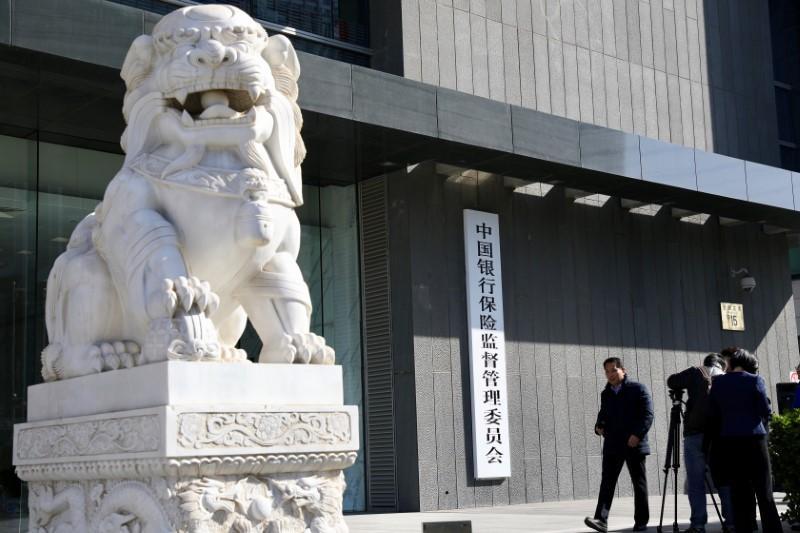China has announced the biggest overhaul in years of the country’s financial supervisory system, with plans on Tuesday for a new national regulator.
A plan put to the national parliament showed that one of the pillars of the old system – the China Banking and Insurance Regulatory Commission (CBIRC) – will be scrapped and replaced by the new financial administrator.
China’s financial sector is currently overseen by the People’s Bank of China (PBOC or central bank), the CBIRC, and the China Securities Regulatory Commission (CSRC), while the cabinet’s Financial Stability and Development Committee has an overall purview.
The proposed administration, directly under the State Council, or cabinet, will be in charge of regulating the financial industry except the securities sector, while certain functions of the PBOC and CSRC will be transferred to the new administration.
The new regulator will “strengthen institutional supervision, supervision of behaviours and supervision of functions,” according to the plan, with all kinds of financial activities to be supervised according to the law.
Supervision will be “penetrating” and “continuous”, the proposed plan said.
ALSO SEE:
Chinese Minister Warns US: ‘Mistaken’ Policies Risk ‘Conflict’
National data bureau
China will also set up a national data bureau that will be responsible for coordinating the sharing and development of the country’s data resources, according to a plan submitted on Tuesday to parliament.
The proposed bureau will be administrated by the state planning agency, the National Development and Reform Commission (NDRC), the plan said.
Certain functions of the NDRC and the Office of the Central Cyberspace Affairs Commission, which oversees China’s internet, will be transferred to the new bureau whose tasks will include promoting smart cities and the exchange of information resources across industries, it also said.
China has in recent years strengthened oversight over data collected in the country, motivated by fears that unchecked collection by private firms could allow state actors to weaponise information on infrastructure and other national interests, and the belief that data has become a strategic economic resource.
This has included issuing a series of new laws that require organisations with large user bases undergo assessments and obtain approvals when handling data. Some firms are struggling with a deadline requiring them to seek approval to export user data.
One source at a large Chinese tech firm said the initial impression from the plan was that the bureau would be mainly tasked to cultivate the data market and that regulatory functions would continue to sit with bodies such as the Cyberspace Administration of China.
Alfredo Montufar-Helu, head of think tank The Conference Board’s China Center, said having one single agency in charge should help address inefficiencies arising from overlapping jurisdictions between agencies and ministries.
This “has been one of the key issues affecting regulatory compliance in China, and which authorities have tried to address over the past years,” he said.
But a one-size-fits all solution could be challenging as other large markets have shown, said Alex Roberts, a Shanghai-based lawyer at Linklaters. “Multinationals will no doubt want to understand how a centralised data regulator will interface with overseas stakeholders.”
Ambitious reforms
Last week, President Xi Jinping renewed his call for ambitious reforms of party and state institutions, after clinching a precedent-breaking third leadership term during a major party congress in October where he sealed his place as China’s most powerful ruler since Mao Zedong.
The overall reform plan will be “targeted, intensive and wide-ranging, touching on deep-rooted interests”, Xi told the party’s Central Committee.
China’s legislature, currently gathering for their annual meeting in Beijing, will vote on the institutional reform plan on Friday.
- Reuters with additional editing by Jim Pollard
NOTE: Further details were added to this report (about the national data bureau) on March 7, 2023.
ALSO SEE:
China’s Xi Admits Mixed Feelings on CATL’s EV Battery Success
China Exports, Imports Slump in First 2 Months as Demand Sinks
Xi’s Right Hand Man, Li Qiang, to be China’s Next Premier
US ‘Discussing Possible China Sanctions’ With Allies Over Ukraine
























